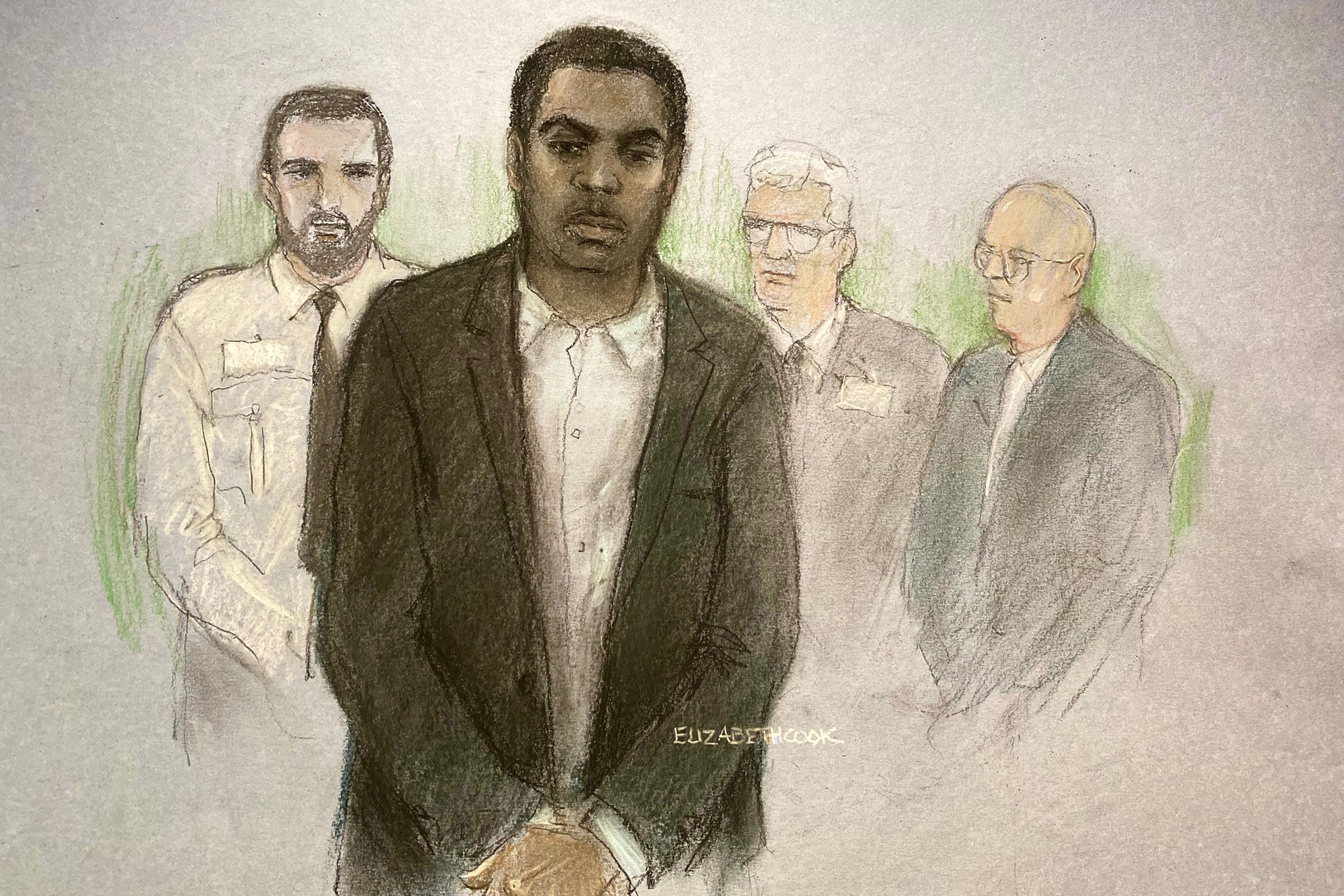Calls to overhaul murder laws in wake of Nottingham attacks
Triple killer Valdo Calocane was sentenced to an indefinite hospital order last month.

Your support helps us to tell the story
From reproductive rights to climate change to Big Tech, The Independent is on the ground when the story is developing. Whether it's investigating the financials of Elon Musk's pro-Trump PAC or producing our latest documentary, 'The A Word', which shines a light on the American women fighting for reproductive rights, we know how important it is to parse out the facts from the messaging.
At such a critical moment in US history, we need reporters on the ground. Your donation allows us to keep sending journalists to speak to both sides of the story.
The Independent is trusted by Americans across the entire political spectrum. And unlike many other quality news outlets, we choose not to lock Americans out of our reporting and analysis with paywalls. We believe quality journalism should be available to everyone, paid for by those who can afford it.
Your support makes all the difference.The Government is facing calls to overhaul murder laws in the wake of the Nottingham attacks after a watchdog found prosecutors correctly charged triple killer Valdo Calocane but could have handled the case “better”.
A review of the actions taken by the Crown Prosecution Service (CPS), published on Monday, found prosecutors complied with the law and met their obligations to the families of Calocane’s victims, but also highlighted areas where grieving relatives “could have been better supported”.
The report, ordered by Attorney General Victoria Prentis, instead called on ministers to consider re-categorising homicide laws, as recommended by the Law Commission nearly 20 years ago, to make three tiers of charges available to prosecutors – first degree and second degree murder, as well as manslaughter.
It is unimaginable having to deal with the death of a loved one under such horrific circumstances
Calocane was sentenced to an indefinite hospital order last month for stabbing to death university students Barnaby Webber and Grace O’Malley-Kumar, both 19, as well as school caretaker Ian Coates, 65, in the early hours of June 13 last year.
He admitted manslaughter by diminished responsibility as well as pleading guilty to the attempted murder of three people who were hit by a van stolen from Mr Coates, after Nottingham Crown Court heard he had been diagnosed with paranoid schizophrenia.
There was an outcry of anger from the victims’ families after prosecutors decided not to pursue murder charges for Calocane, prompting Ms Prentis to order the review of how the CPS handled the case and ask the Court of Appeal to review the sentence.
Describing the case as “horrific and tragic”, Anthony Rogers, chief inspector of His Majesty’s Crown Prosecution Service Inspectorate (HMCPSI), said: “It is unimaginable having to deal with the death of a loved one under such horrific circumstances, but having to deal with the criminal justice system at a time of heartbreak and grief adds a further dimension of challenge.
“To better support victims and increase public trust, we call on the Government to consider amending the homicide law, review the support provided to victims of crime in serious cases such as this, and provide greater clarity about the role of victims in the criminal justice system.”
According to the report, the watchdog said: “In this case, we conclude that the CPS charging decision was correct, that the acceptance of the pleas of not guilty to murder but guilty to manslaughter was correct, and generally the CPS met their obligations set out in the Victims’ Code and the Bereaved Family Scheme. But the experience of the families is such that they felt unsupported and secondary to the whole process.”
There were “a number of aspects where the CPS could have handled this case better”, the findings said as it set out problems with how prosecutors communicated with the families of Calocane’s victims and the language used to discuss decisions being made.
Inspectors found that if the Law Commission’s 2006 recommendations on homicide charges had been accepted and implemented, “the unlawful killings in this tragic case would have been categorised as murder, albeit second degree murder”.
The report acknowledged the watchdog’s findings would be “disappointing for the families”, adding: “They were clear when we met with them that they felt let down, that they had no voice, and that they had been treated as secondary parties in the criminal justice system.”
The case “brings into stark relief the disconnect that can exist between the reality of being in the system and what support there is available”, the report said, adding that the families’ concerns and the “public disquiet about this case highlights aspects where further consideration is needed”, as it set out how the Government should act.
Prime Minister Rishi Sunak previously promised the victims’ families that “we will get the answers” but their calls for a public inquiry have so far gone unanswered.
Other investigations into the actions of police and mental health staff continue.
The families previously said they were due to meet police watchdog the Independent Office of Police Conduct (IOPC) – which is investigating both Nottinghamshire and Leicestershire forces over their handling of the case – on Tuesday.